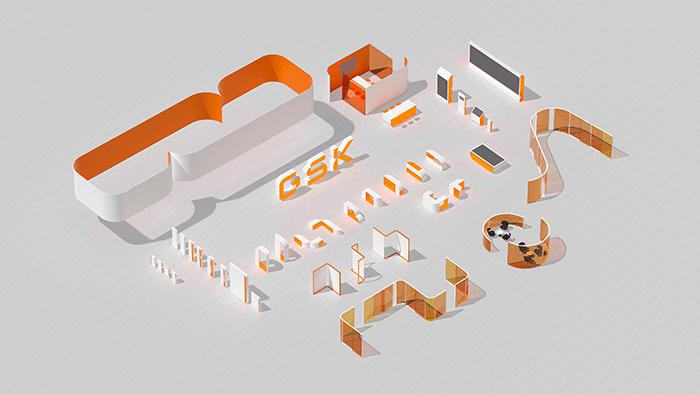What good is our social sphere if consumer brands simply remained stagnant in their brand experiences? This is somewhat the proposition that Wayne Deakin, creative lead at British ad agency Wolff Olins, gave in his piece, Don’t believe the hype–rethink brand experience – penned and published here at MARKETECH APAC last September 2022.
There is quite an unsettling but interesting air from the way the ad man painted a picture of branding – indicating as if something is at stake other than just top-of-mind positioning, consumer perception, and loyalty. Nonetheless, Deakin must have struck a chord in audiences, earning it the topmost readership in 2022 amongst all written insights by industry leaders on the platform. This makes the feature our Thought Leadership of the Year.
The think piece that began with a sundry of worldly sorts
Reading into the first few paragraphs of Don’t believe the hype–rethink brand experience, you wouldn’t know that the think piece is indeed about branding. The global principal for design at Wolff Olins begins his commentary by explaining how the world is changing, touching on a sundry of entities such as the architecture of cities, data and AI, and gender identity.
Speaking to MARKETECH APAC, Deakin said that our experience with a brand is “made up [of] multiple interactions and [micro-interactions].”
He further goes, “Brand isn’t a top-down or traditional channel approach but instead thinking of brand as a living breathing ecosystem of parts and how it stretches across all parts of business and operations.”
What Deakin seems to assert is that branding has ceased to revolve solely around marketing tactics, whereas “Marketing is just one piece in how you surface as an identity today.”
He says, “We now need to view [brand-building] in a more open and transparent approach…[the] reality is that [today,] all the actions a brand does need to be viewed as [brand-building] opportunities, as consumers and employees are judging your brand on many fronts.”
Befriending friction and considering principles of atomic design for your branding
Blocks of intelligent insights later, you’d find that Deakin’s main show has yet to come into the feature – and that would be his out-of-the-box and unorthodox three-pointer on how to deliver a brand experience that respects consumers’ unpredictable human nature.
And it goes as follows: One, whereas ‘friction’ is at all costs avoided, he advises making your ‘friend’; two, in the same breath as breaking traditional approaches, he believes speed is not always king; and three, he encourages brands to consider the mechanism of atomic design and adopt the value of composability.
If he were to pick only one and identify the most important amongst the three, he said it would be what he paralleled with science – being composable.
“It seems we are in a recession, so the concept of being composable is something that brands should prioritise for sure,” he said. “Making sure you are armed with a modern design system that is adaptable to different channels and media is something that’s critical in a [recession] when different channels and platforms will be hit in different ways.”
On a less technical note, but still in the name of being ‘flexible’, Deakin also reiterates that it’s about “being a friend, not just a utility.”
“Psychological segmentation has an important role to play in understanding how we can be more human and coherent – showing up in many ways at the right time in the right way.”
On aiming to be a category leader, he said, “That ability to arm your agency and partners with a composable brand that can work in many ways to attract different audiences is essential.”
What brands must focus on this 2023
Deakin’s insight was penned in September 2022, and as of writing, had been a good quarter ago. In today’s fast-paced tech-inclined environment, that could metaphorically be described as light years ago if we’re talking about keeping up with consumers’ ever-changing nuances.
If he would have written the piece today, Deakin said he would not change a thing.
“I wouldn’t change anything I wrote. I would say that [there are] even more reasons to lean into brand experience as we move into 2023.”
“As economic times get tougher, businesses tend to cut costs of course but brand experience is a very useful approach to become more agile and to convey the values, [meaning,] and purpose of your brand quickly, [easily,] and – most importantly – responsively to customers’ evolving concerns and needs in changing times.”
He said that 2023 is all about one thing, and that is building trust. Deakin joins the many leaders today that are advocating to focus more on consumer retention over acquisition.
His two cents on the matter, “It’s not about throwing everything into searching for endless new customers but [instead] [about] making existing customers spend more time, money, and interactions with your brand.”
He looks to BigTech members Apple and Amazon, and opened up about how the said players don’t waste efforts into bringing in new evangelists, but instead, finding more ways to keep those within their business ecosystem inside it.
“If you [were to] do one thing well in [2023,] it should be prioritising the thing that galvanises trust with your primary customers – the customers whose loyalty you can’t afford to lose, especially in uncertain times.”
Deakin concluded, “Spend more energy on building that deeper connection.”
This recognition is based on Google Analytics results on the most-read stories of 2022, along with editorial validation on the significance of a leader’s contribution, campaign results, and overall impact.




